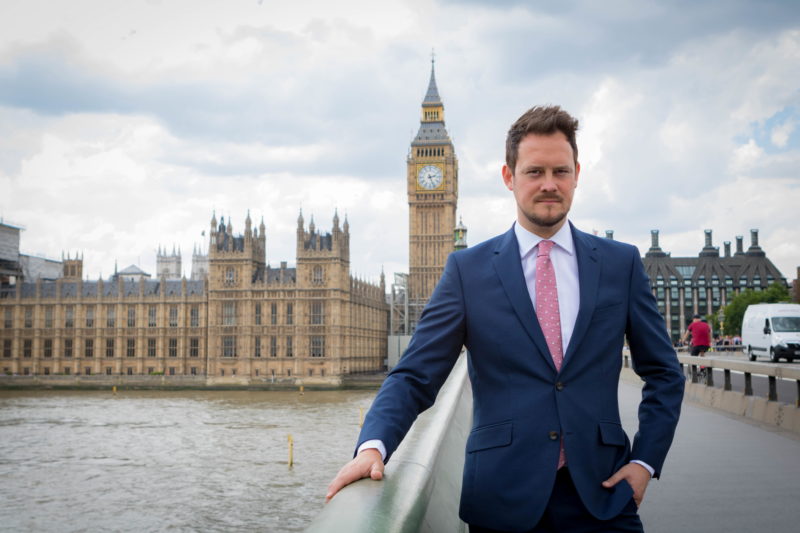
It is a common and dangerous misconception that attending the dentist regularly is something to be snuffed at. Anyone who has frequented a pub will have overheard conversations of false bravado and seen people boasting how they haven’t been in a dentist’s chair for over 5 years.
The importance of regularly getting an oral health check-up must never be underestimated.
Tooth decay remains the leading reason for hospital admissions among young children. The worst thing about this? It is entirely preventable. With nearly 40,000 children admitted to hospital to have multiple teeth extracted under general anaesthetic in 2017-18, this is a plight not only to young children and their parents, but also to the tax payer – costing the NHS a substantial £32 million a year.
Children are not alone when it comes to poor access to dental services. We know that half of all adults in England – just shy of 22 million people – have failed to see an NHS Dentist for over 2 years. The same data set exhibits that over 40% of children have not been to a dentist in half that time. It is fair to say that people in the UK are not going to the dentist enough and this is having catastrophic consequences for our NHS, patient wellbeing and the taxpayer.
The city I grew up in, Portsmouth, has borne the brunt of the crumbling state of our NHS dental services. When the news broke that three practices would be closing their doors for the last time in my city, following a decision made by Swiss-investment firm owned Colosseum Dental, it became clear that between 9,000 and 20,000 Portsmouth people could be left without a dentist.
The fact that the nearest available spaces according to the NHS website were a car or ferry journey away means that yet again, the most vulnerable in society will be disproportionately affected.
How will poorer families pay for additional transport costs? How will single parents get the time off work to travel the extra distance? What will the additional environmental cost be for our city already plagued by air pollution?
In a bid to get to the crux of the problem and mitigate as much as possible against the imminent crisis, I wrote to the Health Secretary, the Chief Executive of NHS England, the British Dental Association, liaised with local Healthwatch representatives and asked the Minister directly in Parliament. In the subsequent summit that took place in Westminster with NHS England, the body responsible for commissioning these services, the extent of the problem was laid bare.
The findings were shocking.
As an ex-commissioner, I was alarmed at the lack of clout possessed by NHS England in circumstances where contractors fail to deliver their services. Not only had Colosseum failed to inform NHS England that they were conducting a review of their services, they have closed two of the three practices earlier than agreed – displaying blatant disregard for their contractual obligations.
In the following discussions, I urged NHS England to take appropriate punitive measures against the irresponsible decision making shown by the third biggest dental provider in the UK and hit them where it hurts. The pocket.
While it is tempting to place sole blame on the multinational private company, there were problems with patient access to dental services long before Colosseum let patients down. Nearly 35% of patients in Portsmouth could not find a dentist when they tried to – that’s over 10,000 people left with access to oral healthcare. This supersedes the already concerning national average by over 10% and demonstrates major failings in the ability of this Government to provide much needed oral health care to residents in my city.
It seems that the quiet crisis in Portsmouth is a microcosm of the current patient access predicament faced by the nation. It should act as a canary in the mine and signal to Minister that urgent reform is needed.
So, how do we address this problem? When I met with the Chair of the British Dental Association, this is exactly the question I posed. From Portsmouth to Penrith, the primary reason for the current crisis we are seeing is the way the Government has decided to commission services.
They effectively set quotas on the numbers of patients a dentist can see on the NHS. These contract caps dictate that if a dentist delivers more than they have been commissioned to do, they have to take the hit for materials used and cover the full cost of the service. The system is no longer fit for purpose. Something that the Health Select Committee, The Chief Dental Officer and patients across the country all agree on.
If we are to address these major failings and increase much-needed patient access to oral healthcare, we must see a large-scale reform of the system. We must see a new system rolled out as a matter of urgency, with the principles of long-term sustainability, prevention and better access at its core.
Portsmouth has proven that if left alone, current commissioning structures can allow a quite crisis to transition into a major problem for patient access. If we do not see this much needed overhaul implemented imminently, more and more people will be left without access to oral healthcare and our already stretched emergency services will buckle under the additional strain.

